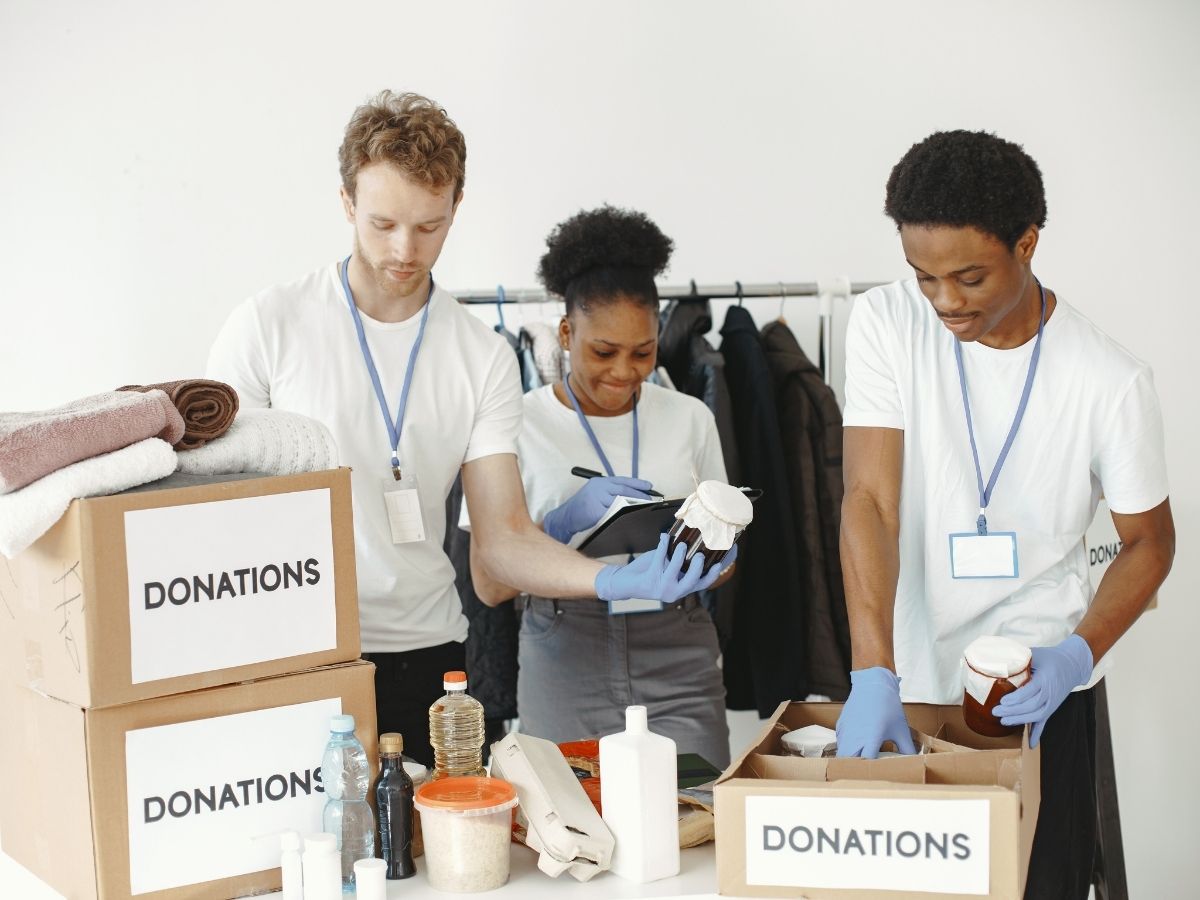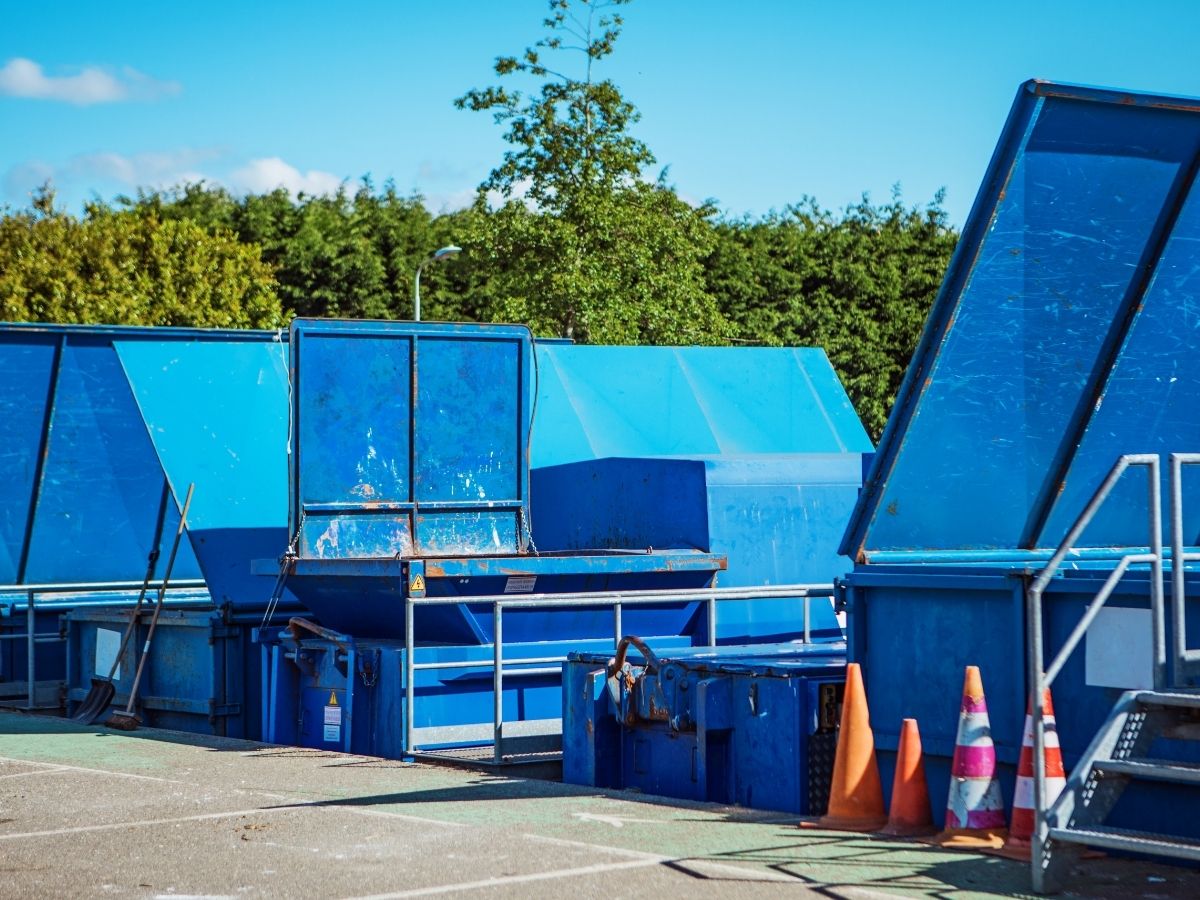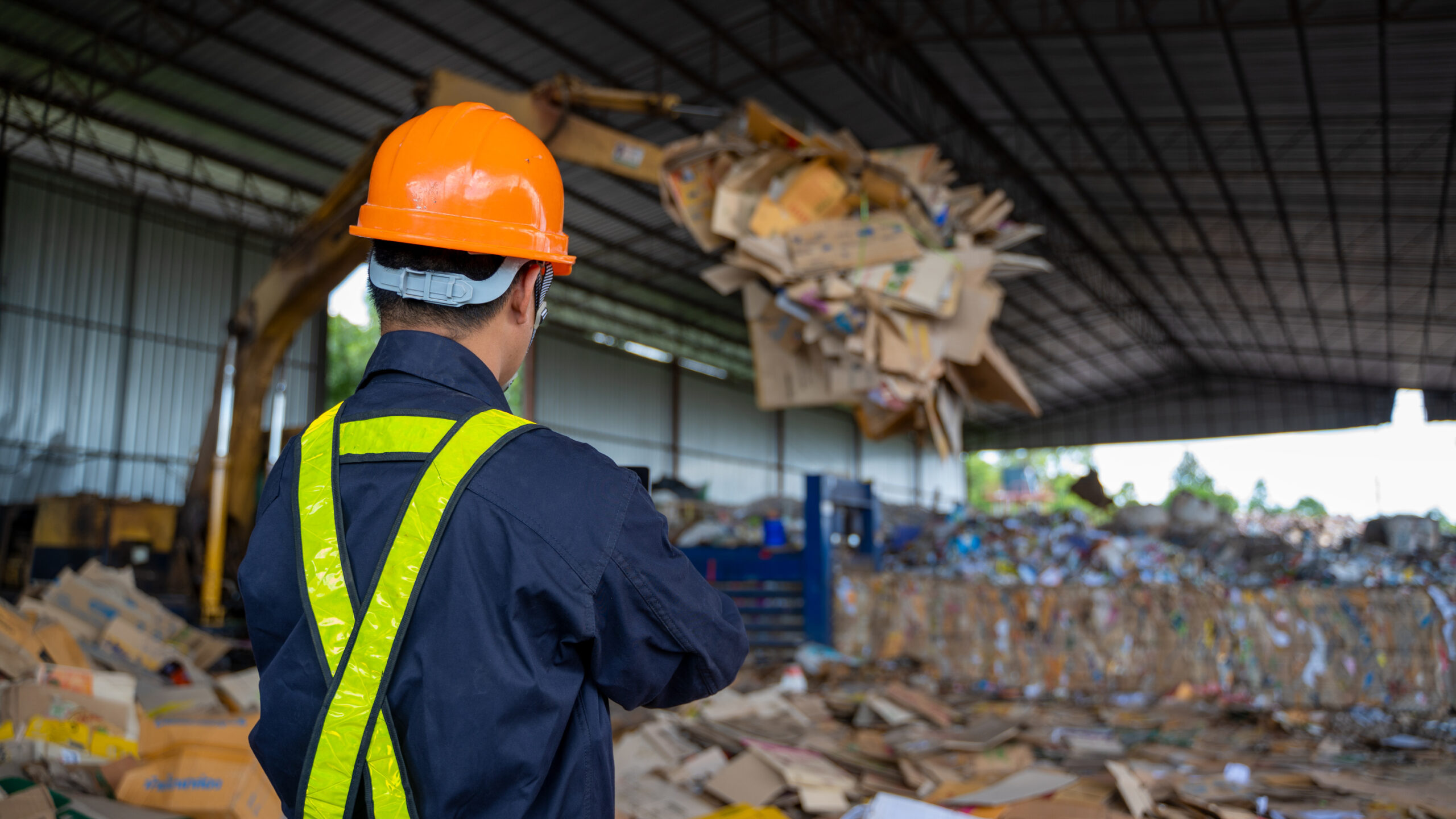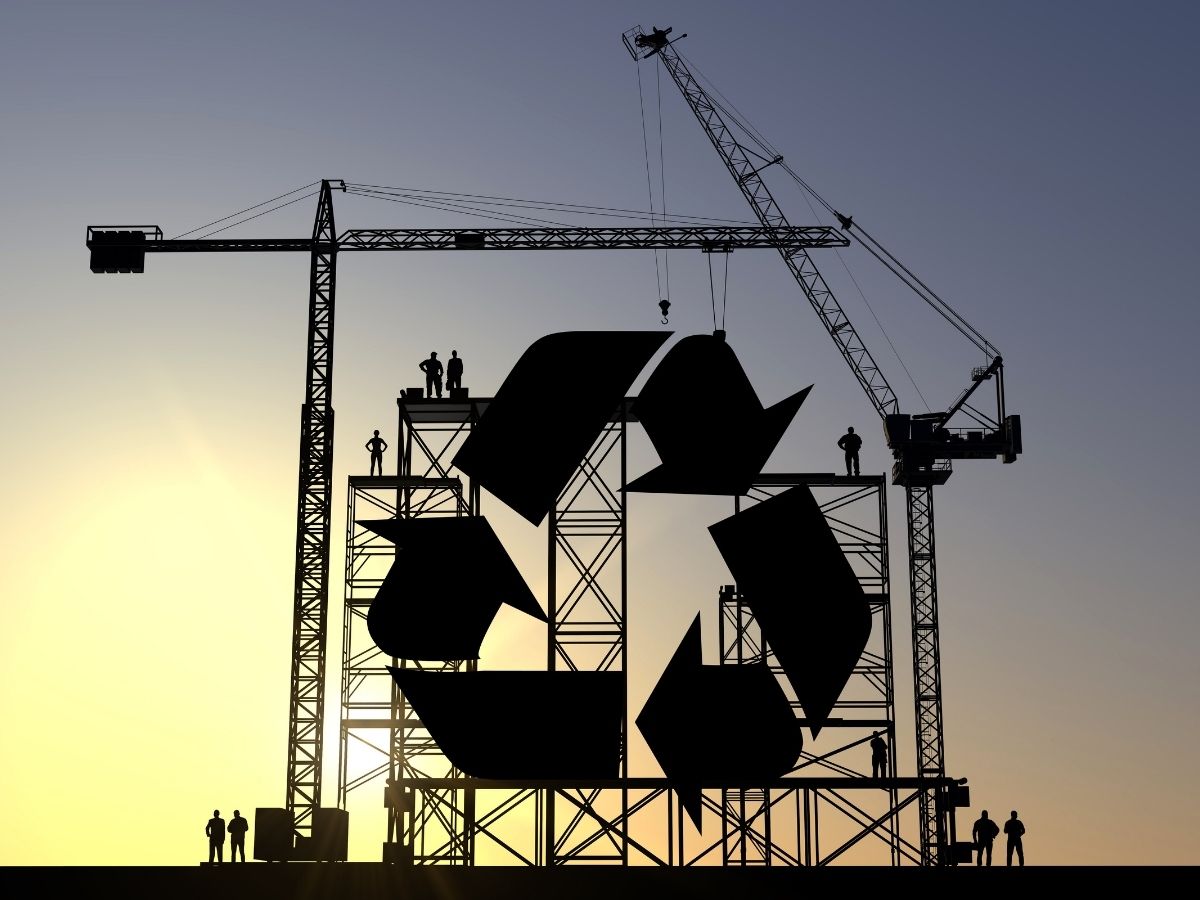The concept of recycling is not a new idea, and in the following article KC Dumpster discusses how to properly recycle construction materials at the worksite. There are a number of cities that offer homeowners recycling options, and many trash companies are offering retailers and manufacturers dumpsters specifically for recycling. However, one must wonder what happens on a construction site.
In many instances, recycling construction materials is not as easy as tossing household trash into a bin and waiting for the trash pickup. However, many companies are actively seeking out construction debris recycling in an effort to reduce the amount of construction debris, especially on projects that are pursuing green certifications.
There is actually a lot of good news and improvements with waste recycling methods on construction sites. The vast majority of common construction materials have the ability to be recycled and this includes shingles, glass, metal, concrete, plastics, wood, asphalt, carpet, as well as insulation. The following tips are going to ensure you are able to start recycling as soon as possible on your jobsite.
6 Essential Tips to Recycle Construction Materials
It is possible to integrate a waste diversion plan within the project at the very start. While in many cases it would seem that the easiest plan would be to allow a hauling company to haul off the major portion, there are a few things you will want to keep in mind while reducing demolition and construction waste as well as handling some of the repurposing while on the actual jobsite.
Partnering With Local Charities
You will want to begin the salvaging process before work even begins. If the project is going to involve demolition, you are going to need to get rid of debris. Would it not make sense to get rid of some of it before the walls come crumbling down?
Many local charities will be more than willing to help and, in some cases, remove items that they feel they could either use in a project or sell. If there is time available in the project, you may want to reach out to a number of local charities and see what they are searching for. Many times they will be interested in kitchen and bathroom fixtures, doors, cabinets, and other general items.

Creating A Materials Reuse Plan
Of course, you are not going to be able to reuse every single item on a site. However, it is possible to decide which older materials may be able to be used on a future project.
Search through your supply list and consider ways in which you may be able to reduce specific materials that would be recycled. Think of how you may be able to reuse lighting fixtures or excess lumber on a future project. For example, the extra lumber could be used to create part of a deck.
It is important that you simply do not limit the materials that you are purchasing. Consider your overall surroundings as well. Always look at gravel and dirt which may be flattened out and could be repurposed to re-grade a green space surrounding a new building. Additionally, instead of removing trees, plants, and bushes that are going to wind up in a dumpster, consider trying to see if they can be relocated or integrated into the landscaping for this new building.

The following questions are going to help you formulate a plan.
- Does the worksite allow for an area to store excess materials?
- What items will be sent to the landfill and why will they be sent there?
- If a demolition is going to be planned, can any materials be used on a future project?
- Do you have any possible projects in the future in which you may be able to use some of the reclaimed materials?
Understanding Local Recycling Requirements
In order to save on a situation in the future, it is important to reach out to local recycling facilities to get to know their policies. In many cases, all facilities are similar and take in many of the same items. But, there will always be that one situation where they are unable to process a specific type of debris.
When you contact a facility, you will want to get answers to common questions like:
- What materials are accepted?
- Is there a limit to how much of a material can be accepted?
- Are there any weight or size restrictions for individual pieces of material?
- Will items such as dirt and concrete need to be cleaned of any excess material?
Knowing the answers to these common questions is going to ensure you do not make costly mistakes in the future. In some cases, you are going to have to make several phone calls in order to have all of your questions answered, but this is going to ensure the waste you have to dispose of can be met by the specific facility.

Creating A Recycling Plan
It is impossible to begin a construction job without a proper blueprint. Likewise, you do not want to start a project without having a proper recycling plan ready to go for the right amount of success.
The first draft is not going to need to be perfect, and in many cases you will find that you need to adjust for many different scenarios. When you begin a product with a plan in your hand it is more than likely that you will be able to reach your recycling goals.
There are always going to be a number of moving parts to contend with. Start with whether you prefer off-site or on-site recycling.
Off-Site Recycling
Off-site sorting allows for all of the materials to be placed into a single load and the facility will sort it for you. Off-site recycling is going to save you considerable time in the long run as all materials are tossed into one container. On a small worksite, this would more than likely be an ideal solution as there are generally less containers available on site. On the other hand, this will be a more expensive solution as facilities are going to charge more for the sorting.

On-Site Recycling
On-site sorting requires that all materials are going to be placed in their own containers on the jobsite. These will then be taken to the correct facility which is able to process the specific material.
On-site facilities are going to be one of the best ways to recycle much more of your construction debris. On-site facilities will require more space as well as additional trips to various facilities depending upon what is available in your area. You will have much more control over the general recycling process with on-site recycling. If you are going to have high recycling targets, you may want to consider on-site sorting as the primary method to recycle construction materials.
Planning And Working In Batches
The less that you are forced to toss away, the easier it is going to be to reach any waste diversion goals. This is especially true with any items that have a short shelf life. Perhaps you are working with lumber that is unable to withstand much rain or you have insulation that will lose its effectiveness in direct sunlight. Understanding how much of a particular product you are going to need for various sections of the project will ensure less spoiled material.
If possible, you will want to work in a number of batches to ensure perishable items do not go bad. Consider if you need caulk for a kitchen and for two bathrooms. Try to complete those rooms before the caulk expires, even if this plan of attack does not seem to make much sense in the long run.

This one tip is going to help you as much as it helps the environment. The fewer items that will have to be thrown out means less items are going to need to be purchased which in turn ensures a lower cost for the project in general.
Partner Up With KC Dumpster to Recycle Construction Materials
There are a number of moving parts to formulate a perfect recycling practice, and hiring Kansas City’s number one roll-off dumpster company will help ensure your construction waste diversion plan becomes a reality.
Working with a company like KC Dumpster will save you considerable time and money. We will take care of all the research for you and find out what type of materials are going to be accepted from your jobsite as well as what restrictions may be in place.
Another benefit of hiring KC Dumpster is we will deliver the correct dumpster rental size to your jobsite and ensure the waste from the site is hauled off in a timely manner to the right place.
It is so important to recycle construction materials, and KC Dumpster is here to help! Learn more about our roll off dumpster rentals by giving us a call at (816) 491-4811.
Leave A Comment